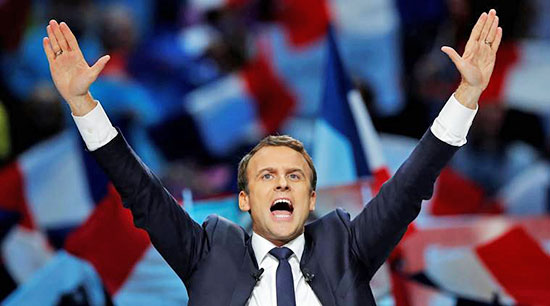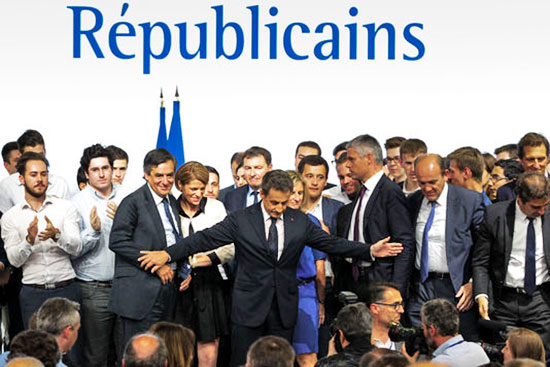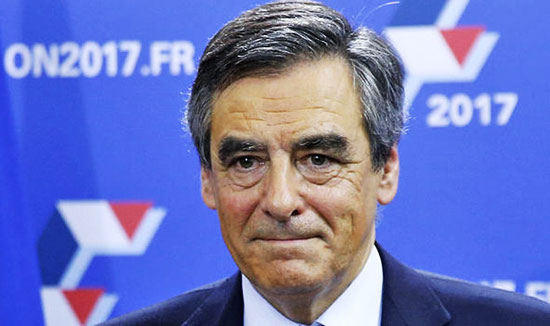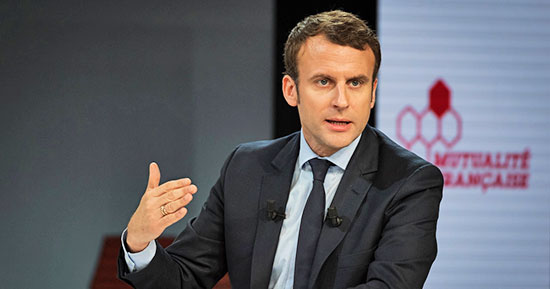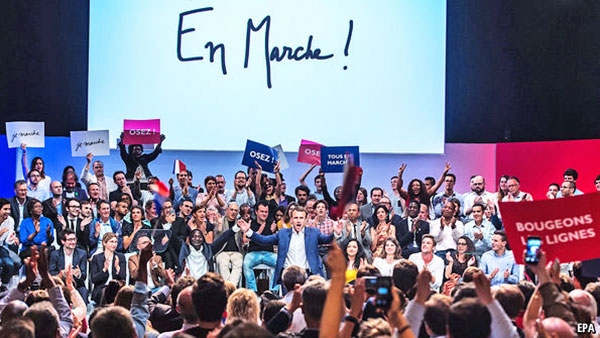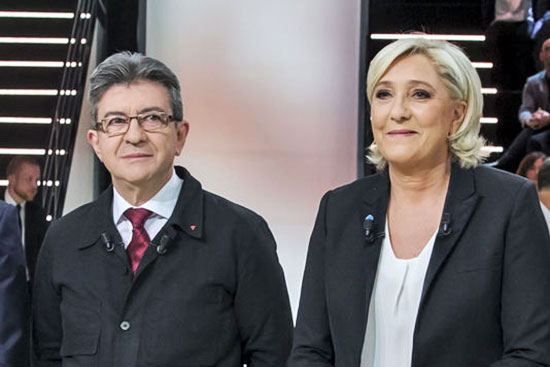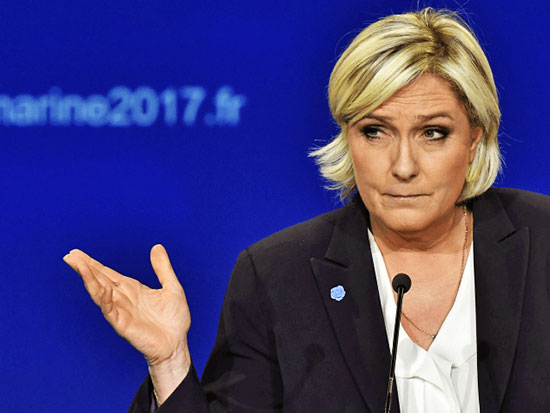|
Emmanuel Macron won only because a majority felt they had to vote against the ghost of "fascism" allegedly embodied by his opponent, Marine Le Pen.
Whether out of panic or
out of the need to feel respectable, the French voted two to one in
favor of a man whose program most of them either ignored or
disliked. Now they are stuck with him for five years.
For decades, there has been nothing "socialist" about the Socialist Party and nothing Gaullist about The Republicans.
In reality, both have adopted neoliberal economic policies, or more precisely, they have followed European Union directives requiring member states to adopt neoliberal economic policies.
Especially since the
adoption of the common currency, the Euro, a little over fifteen
years ago, those economic policies have become tangibly harmful to
France, hastening its deindustrialization, the ruin of its farmers
and the growing indebtedness of the State to private banks.
The simplest reaction has
been widespread reaction against both parties for continuing to
pursue the same unpopular policies. The most thoughtful reaction has
been to start realizing that it is the European Union itself that
imposes this unpopular economic conformism.
It has broken and
absorbed large parts of both, in an obvious move to turn En
Marche! into a single catch-all party loyal to Macron.
Since the "Socialist"
government was so unpopular that it could not hope to win, it was
easy to lure prominent members of that party to jump the sinking
ship and rally to Macron, who had been economics minister in that
unpopular government, but who was advertised by all the media as
"new" and "anti-system".
Thanks to the deep unpopularity of the outgoing Socialist government, the Republican candidate, François Fillon, looked like a shoo-in. But despite his pro-business economic policies, Fillon still cared about preserving France, and favored an independent foreign policy including good relations with Russia.
It is unknown who dug into old records to come up with information about the allegedly fake jobs Fillon gave to his wife and children in past years, and how they were passed on the weekly Canard Enchainé to be revealed at a critical moment in the campaign.
The uproar drowned out the issues. To an electorate already wary of "establishment politicians", these revelations were fatal.
The impression that
"politicians are all corrupt" played into the hands of
Emmanuel Macron, too young to have done anything worse than make a
few quick millions during his passage through
the Rothschild Bank, and there's
nothing illegal about that.
But Macron had no party, so he is creating one for the occasion, made up of defectors from the major defeated parties as well as his own innovation, candidates from "civil society", with no political experience, but loyal to him personally.
These "civil society" newcomers tend to be successful individuals, winners in the game of globalized competition, who will have no trouble voting for anti-labor measures.
Macron is thus confirming
Marine Le Pen's longstanding assertion that the two main parties
were really one big single party, whose rhetorical differences
masked their political convergence.
Weakening them further,
Macron named a Republican, Edouard Philippe, as his Prime
Minister, in a government with four Socialist and two Republican,
alongside his own selections from "civil society".
But only the hysterical anti-fascist scare can explain why self-styled leftist "revolutionaries" such as François Ruffin, known for his successful anti-capitalist movie "Merci Patron", could join the stampede to vote for Macron - promising to "oppose him later".
But how?
Loss of industry means loss of jobs and fewer workers.
When industry is no longer essential, workers have lost their key power:
Currently the desperate workers in a failing auto-works factory in central France are threatening to blow it up unless the government takes measures to save their jobs.
But violence is powerless
when it has no price tag.
Emmanuel Macron has said that he wants to spend only a short time in political life, before getting back to business.
He has a mission, and he is in a hurry. If he gains an absolute majority in the June parliamentary elections, he has a free hand to govern for five years. He means to use this period not to "reform" the country, as his predecessors put it, but to "transform" France into a different sort of country.
If he has his way, in
five years France will no longer be a sovereign nation, but a
reliable region in a federalized European Union, following a
rigorous economic policy made in Germany by bankers and a bellicose
foreign policy made in Washington by neocons.
He was most warmly welcomed by Chancellor Angela Merkel, thanks to his clear determination to force through the austerity measures demanded by the Frankfurt budget masters.
Macron hopes that his
fiscal obedience will be rewarded by German consent to a European
investment fund for stimulating economic growth, but this implies a
degree of federalism that the pfennig-pinching Germans show little
sign of accepting.
For Macron, the ruin of
French industry and French farming seem to be welcome steps toward
an economy of individual initiative, symbolized by startups.
This is an ideal easily
accepted in the United States with its longstanding myth of the
self-made man. The French have traditionally been logical enough
to understand that everyone can't rise above the others.
These are the benefits that are under threat from the European Union in various ways.
One way is the imposition of "competition" rules that impose privatization and favor foreign takeovers that transform public services into profit-seekers.
Another is the imposition
of public budget restrictions, along with the obligation of the
State to seek private loans, increasing its debt, and the loss of
tax revenue that all end up up making the State too poor to continue
providing such services.
From this viewpoint, France is just a place open to diverse cultures, as well as to immigrants and of course foreign capital.
He has clearly signaled his rejection of French independence in the foreign policy field. Unlike his leading rivals, who all called for improved relations with Russia, Macron echoes the Russophobic line of the neocons.
He broke tradition on his inauguration by riding down the Champs-Elysées in a military vehicle.
A change of tone is indicated by his cabinet nominations.
Clearly national defense
is an afterthought, when the main idea is to deploy the armed forces
in various joint Western interventions.
The Socialist Party is almost wiped out. The Republicans are profoundly destabilized.
Genuine opposition to the Macron regime can only be based on defense of French interests against EU economic dictates, starting with the Euro, which prevents the country from pursuing an independent economic and foreign policy.
In short, the genuine
opposition must be "souverainiste", concerned with preserving French
sovereignty.
But they are drastically
divided.
Just as Le Pen was
finally knocked out as a "fascist", there is little doubt that had
Mélenchon been Macron's challenger, he would have been increasingly
denounced as "communist".
He therefore took a stand against both NATO and the Euro. So did Marine Le Pen.
Mélenchon was embarrassed by the resemblance between their two programs, and contrary to other eliminated candidates, refrained from endorsing Macron, instead calling on his movement, La France Insoumise, to choose between Macron and abstention.
Finally, 25% of Mélenchon voters abstained in the second round, but 62% voted for Macron - almost exclusively motivated by the alleged need to "stop fascism".
That compares with the
final total results of 66% for Macron and 34 % for Le Pen.
She has admitted her own mistakes in the campaign, particularly in her debate with Macron, who beat her hands down with his arrogant performance as the economic expert. But despite her mere 34%, she retains the most loyal base of supporters in a changing scene.
The problem for Mélenchon
is that his electorate is more versatile.
Marine Le Pen did best
with the youngest age group, 18 to 24, winning 44% against Macron's
56%. [1]
But in what are described
as "categories populaires", a French term for ordinary folk,
with less education, the vote was 53% in favor of Le Pen. And she
confirmed her position as favorite candidate of the working class,
winning 63% of workers' votes.
It used to be the other way around, but that was long ago.
These days, the winners
in the competitive game comfort themselves that they morally deserve
their success, because they are in favor of diversity and against
racism, whereas the less fortunate, the rural people and the working
class, don't deserve much of anything, because they must be "racist"
to be wary of globalization.
In these milieu, hardly
anyone would even dare speak a positive word about Marine Le Pen.
This was never a
realistic possibility, but it is worth imagining.
The ghost would be exorcised. If the word has any meaning, "fascism" implies single party rule, whereas Marine Le Pen made clear her desire to govern by coalition, and selected the leader of a small Gaullist party, Nicolas Dupont-Aignan, as her prospective prime minister.
Poof! No fascism. That would have been an immeasurable benefit for political debate in France.
At last genuine issues
might matter. Real threats could be confronted.
Since Marine Le Pen took over the notorious party founded by her reactionary father, it has kept a precarious balance between two opposing wings.
There is the right wing in the southeast, along the Riviera, the bastion of the party's founder, Jean-Marie Le Pen, a region represented in the outgoing parliament by his conservative granddaughter Marion Maréchal Le Pen.
In the old industrial
northeast region, between Arras and Lille, Marine Le Pen has built
her own bastion, as champion of ordinary working people, where she
won a majority of votes in the presidential election.
All those who want to cling to their comforting hatred of the left's official Satan have trouble believing that Marine Le Pen broke with her reactionary father to go her own way (just as U.S. hawks couldn't believe in Gorbachev).
This change owes everything to her encounter with Florian Philippot, an intellectual who gave up on the ability of the Socialists to face the real issues.
Marine has the personal qualities of a leader, and Philippot provided the intellectual substance she needed. Marine has decisively chosen Philippot as her advisor and co-leader, despite grumblings by Jean-Marie that she has been led astray by a gay Marxist.
Had Marine won, her left wing would have been strengthened enough to enable her and Philippot to scrap the National Front and found a new "Patriot Party".
However, by scoring below
40%, she has weakened her authority and must try to hold the
troublesome party together in order to win seats in the new
parliament - which will not be easy.
She would even have begun
to prepare her compatriots for escape from the Euro.
The outgoing Socialist government was preparing to use the resulting chaos as a pretext to stay in power long enough to manage the parliamentary elections, [2] ensuring that President Marine Le Pen would be held in check.
A "color revolution" was ready to be stirred up.
The deep state is
vigilant in NATOland.
|


